Comprehensive sexuality education (CSE) is central to health and well-being. Good quality CSE includes education about human rights, human sexuality, gender equality, puberty, relationships and sexual and reproductive health.
CSE is essential for young people to be able to protect themselves from unwanted pregnancy, HIV and sexually transmitted infections, to promote values of tolerance, mutual respect and non-violence in relationships, and to support a safe transition into adulthood.
CSE has demonstrated its impact in terms of improving knowledge and self-esteem, changing attitudes, gender and social norms, and building self-efficacy. It has a positive impact on safer sexual behaviours while not hastening sexual activity. Yet despite the clear and compelling evidence, many children and young people are not receiving access to good quality CSE.
The HIV epidemic is not over and young people remain disproportionately at risk. As outlined in UNESCO’s 2016 Strategy on Education for Health and Well-Being, those aged 15-24 account for 16 per cent of the global population, but represent 34 per cent of people in the age group 15-49 years acquiring HIV each year. In many settings, new HIV infections among adolescent girls and young women are substantially higher than among males of the same age. Girls and women are also disproportionally affected by gender inequality, which further limits their access to education and health information and services.
To be effective, CSE content must respond appropriately to the specific context and needs of young people and include a concerted focus on gender discrimination, sexual and gender-based violence, HIV and AIDS, child marriage and harmful traditional practices. Engaging parents and communities in its implementation is critical, as is the adequate training and capacity of the teachers who deliver it.
It is important to recognise that the education sector alone cannot improve young people’s sexual and reproductive health and must be complemented by youth friendly, non-judgemental, confidential health services.
What UNESCO does
In a world where too few young people receive sufficient guidance about physical, social and emotional development as they transition from childhood to adulthood, there is an urgent need for high quality, curriculum-based comprehensive sexuality education (CSE).
CSE facilitates development of accurate and age-appropriate knowledge, attitudes and skills that contribute to positive relationships, health and well-being, and respect for human rights and gender equality.
UNESCO plays a key role in assisting education, health and other relevant authorities in the development and implementation of CSE programmes and materials. In 2018, UNESCO, in collaboration with UNAIDS, UNDP, UNFPA, UN Women, and WHO, published a fully updated International Technical Guidance on Sexuality Education. The Technical Guidance outlines the key concepts, topics and learning objectives which should guide the development of locally-adapted curricula for learners aged 5 – 18+ (French, Chinese, Russian, Spanish).
In July 2016, UNESCO convened a high-level government dialogue to mark progress made since the endorsement of the landmark 2013 ESA Commitment which saw 20 Eastern and Southern Africa (ESA) countries commit to scaling-up comprehensive sexuality education and sexual and reproductive health services for young people (additional resources here)
The event, Fulfilling Our Promise To Young People Today, was held on the sidelines of the 2016 AIDS Conference in Durban, South Africa (18-22 July, 2016), and brought together Ministers and representatives from government, development, and civil society from across Eastern and Southern Africa. The event saw the launch of the 2013-2015 Progress Review on the ESA Commitment (English, French, Portuguese).
A global team of health and education specialists work in UNESCO offices across the world, including Eastern and Southern Africa, Western and Central Africa, Latin America and the Caribbean, Asia Pacific, Eastern Europe and Asia. These specialists support the scale-up and implementation of CSE, in partnership with governments, bilateral partners, civil society organizations and young people.
A full list of resources around comprehensive sexuality education can be found here.
UNAIDS
UNAIDS, the Joint United Nations Programme on HIV/AIDS, brings together the efforts and resources of twelve UN organizations to the global AIDS response.
As a founding cosponsor of UNAIDS, UNESCO works in close partnership with fellow cosponsors and the UNAIDS Secretariat to pursue the Joint Programme vision achieving zero new HIV infections, zero AIDS-related deaths, and an end to all forms of HIV-related discrimination.
UNESCO’s work on education and HIV, in particular its strategic priorities of increasing access to good quality comprehensive sexuality education and making education safe and inclusive, is a key part of the global AIDS response, as recognized in the 2016-2021 UNAIDS Fast-Track Strategy.
UNAIDS Inter-Agency Task Team on Education and School Health
The UNAIDS Inter-Agency Task Team (IATT) on Education and School Health was created in 2002 to support accelerated and improved education sector responses to HIV. It is convened by UNESCO and includes UNAIDS cosponsoring agencies, other multilaterals, bilateral agencies, private donors, civil society, and academia.
IATT members believe that education is the foundation for successful HIV programmes. HIV education is increasingly part of a broad skills-based health education curriculum that is contextually and age-appropriate and addresses sexuality education, gender-based violence and substance use, among other issues that reduce HIV risk and promote the healthy development of learners.
The IATT promotes and supports good practices in HIV and health education by encouraging harmonisation and country-level actions, with the following expected outcomes:
- Increased leadership support and resource allocation for HIV and health education;
- Enhanced evidence base identifying good practice in HIV and health education; and
- Improved collaboration within and across agencies to support harmonized and cost-effective global and country-level actions.

